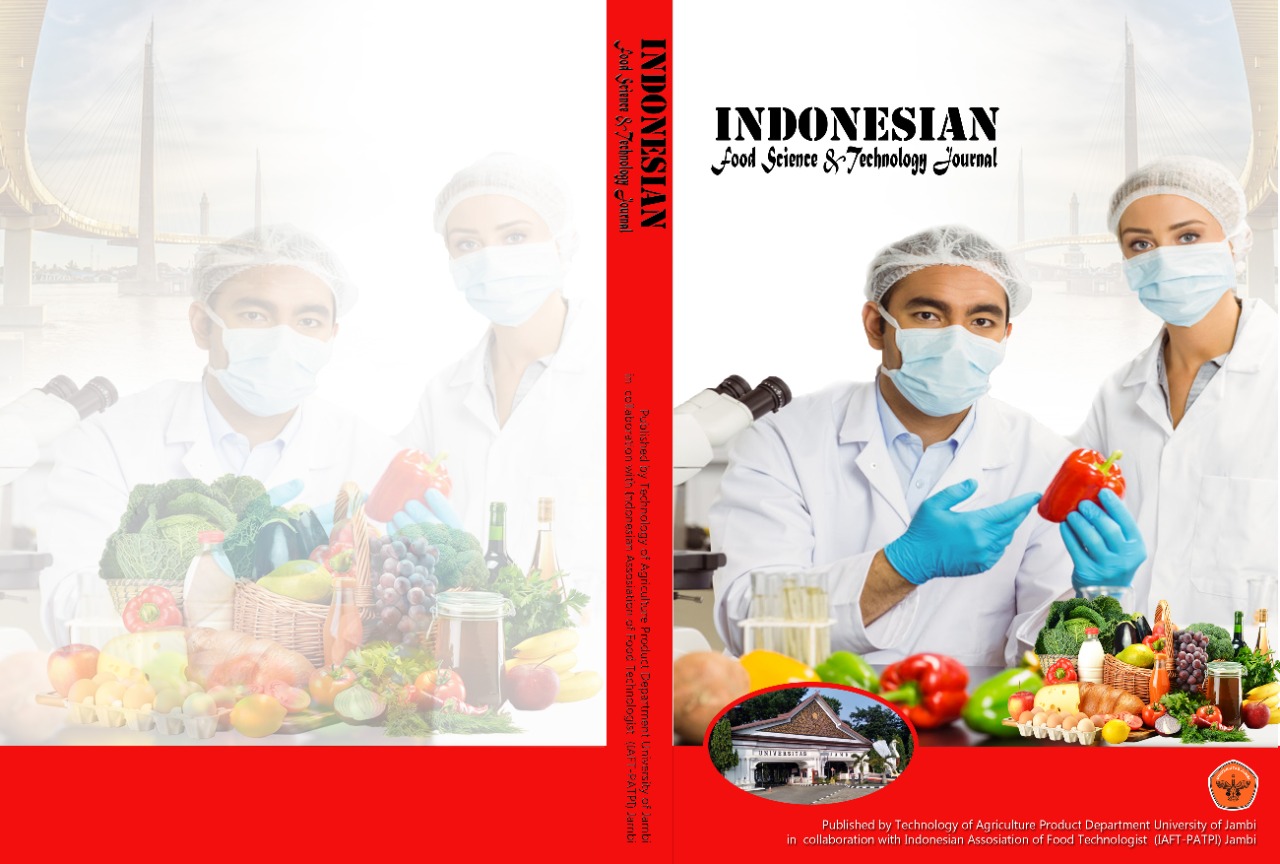Impact of Pomegranate Peel (Punica granatum L.) Extract on Rice Starch-Pectin-Based Films for Maintaining the Organoleptic Properties of Tomatoes
DOI:
https://doi.org/10.22437/ifstj.v7i2.32162Abstract
Pomegranate peel (Punica granatum L.) is commonly disregarded as a byproduct in the juice industry despite its rich content of bioactive compounds. This study investigates the impact of incorporating pomegranate peel extract at concentrations of 0%, 1%, 2%, and 3% into rice starch-pectin-based films. Characterization of the films was conducted using Fourier Transform Infrared Spectroscopy (FTIR) and Field Emission Scanning Electron Microscopy (FESEM). Physicochemical properties including thickness, color, opacity, moisture content, water solubility, and water vapor permeability were assessed. The results demonstrate that the incorporation of pomegranate peel extract significantly enhanced the properties of the rice starch-pectin-based films (p < 0.05). Moreover, antimicrobial assays revealed substantial inhibition of Escherichia coli by films containing 3% pomegranate peel extract. Furthermore, the efficacy of these films was evaluated using real tomato samples to assess their potential to extend the shelf life of perishable foods. The findings suggest that the inclusion of pomegranate peel extract in the film matrix contributes to natural pigment preservation, mitigates microbial contamination, and maintains the organoleptic attributes of tomatoes, thereby potentially enhancing their shelf life. These results underscore the promising applications of pomegranate peel extract in the development of sustainable and functional food packaging materials.
Downloads
Downloads
Published
How to Cite
Issue
Section
License
Copyright (c) 2024 Indonesian Food Science and Technology Journal

This work is licensed under a Creative Commons Attribution 4.0 International License.









